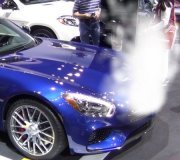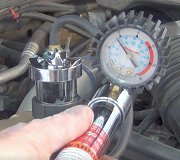Friday, July 13th, 2007 AT 5:55 PM
Okay so two weeks ago, I bought this car from a little car lot. The guy was a friend of my sisters, otherwise I would have gone elsewhere and we were desperate. We spent 1500 on a 1997 chrsyler concorde with 85000 miles. Went around the block it was fine. SMOOTH. When we are done I drive the car roughly a half mile away almost a 3/4 of a mile thru heavy traffic. The car overheats, HUGE plume of white smoke. The mechanic said it was the radiator. Okay so two days later we pick up the car (no we did not pay for repairs) Some sensor was replaced and supposedly the radiator. We drive home (about 30 miles), the car is parked and two days later when we go to drive it, it overheats after 10 minutes of driving. We discover the radiator is LEAKING alot. So we replace the radiator, the relay fan, the coolant, thermostats twice, transimission oil. So then it was throwing some kind of oil from the coolant resoivoir. SO we replaced that. We have replaced several hoses. Now it no longer leaks radiator stuff, transmission stuff or antifreeze. But the damn thing still overheats. We can drive about five minutes and then the heat goes up. If you press the gas it goes up even more. Have not seen smoke yet but it gets up to the red line on the temp gauge. What on earth could be causing this?


